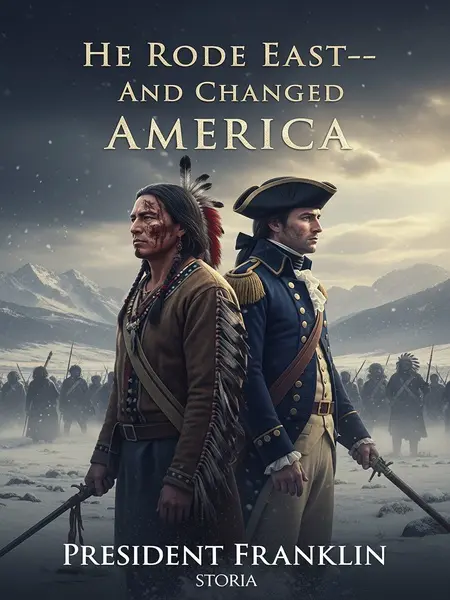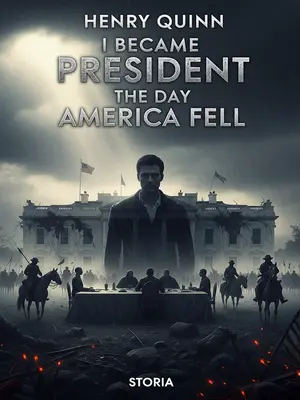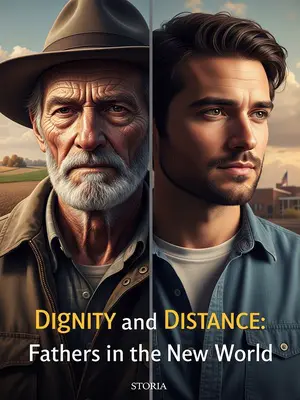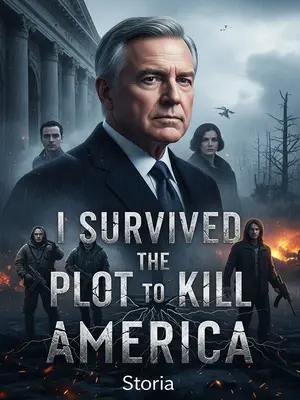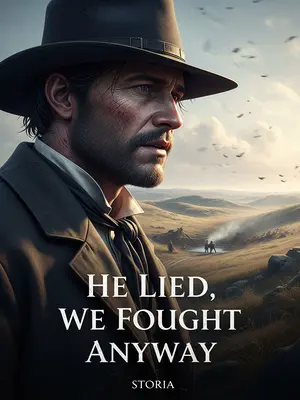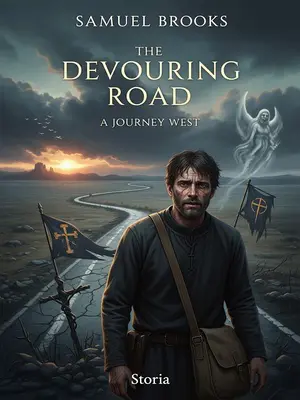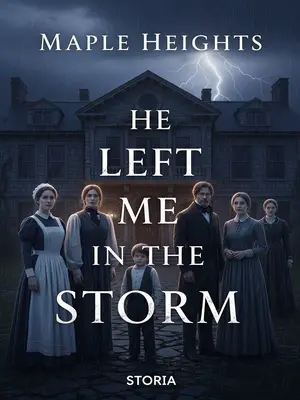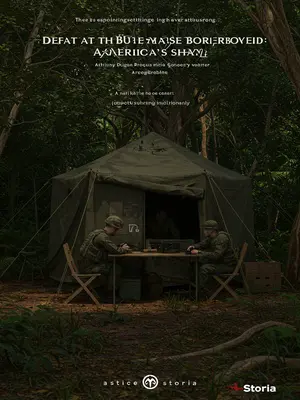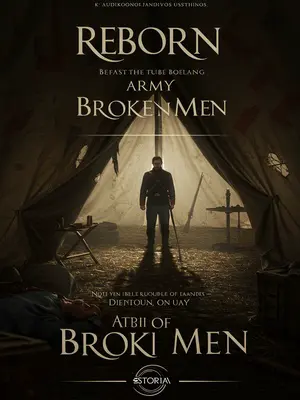Chapter 2: Rise of the Mountain Confederacy
They were racing for the mountain retreat, a good 160 miles from the capital. Franklin made the trip in just three days, pushing himself and his men nearly sixty miles a day. The exhaustion was bone-deep—faces drawn, horses lathered, but Franklin’s urgency wouldn’t let anyone slow down. Every mile felt heavier than the last.
Who could possibly be worth such a grueling ride from the President himself? The question hung in the cold air, unanswered.
The answer: William Red Hawk. His name carried weight everywhere west of the Mississippi—a reputation built on grit and legend.
Red Hawk’s family tree was something else. His grandfather, Chief Tall Elk, once ruled the Yellowstone Valley. His mother’s father, Iron Cloud, was the longest-reigning Confederacy chief. His uncle, White Bear, was the Confederacy’s greatest military mind. This was a man born to lead—and to make enemies. Talk about a loaded legacy. It made you wonder how he carried it all.
Now he’d come from the Montana high plains, driven by a thirst for revenge and a plan that could change the nation’s fate. He wasn’t just running from the past—he was running toward something, too. He had unfinished business.
The story behind his arrival was tangled and bloody. The Confederacy had been ripped apart by infighting—chiefs battling for supremacy, tribes splitting and bleeding. In just a few years, leaders rose and fell like wheat before the scythe. It was chaos—no one knew who to trust.
But taking the throne was one thing—holding onto it was another. At that moment, Black Wolf—once Red Hawk’s friend and ally—was chief. Together, they’d seized power, dreaming of shared glory. But power turns friends into rivals. Red Hawk thought he deserved the real authority; Black Wolf wanted it for himself. They clashed. Red Hawk lost. It must have stung.
With no place left among his own people, Red Hawk turned to the only force big enough to help him: the United States. He aimed straight for President Franklin.
But Red Hawk wasn’t about to come crawling, hat in hand. That wasn’t his style. He crafted his message with care, aiming straight for Franklin’s ambitions: The Confederacy was in chaos, weakened by years of war. Now was the time for the U.S. Army to strike west, unite the region, and restore the Founders’ vision. Red Hawk promised he could sway the tribes, open the way for a swift victory. He knew exactly what Franklin wanted to hear.
It was the kind of offer that made Franklin’s heart pound. The President, who saw himself as a man in Washington’s mold, couldn’t resist. The chance to reclaim the West, to carve his name into history—how could he say no? The temptation was just too much.
So Franklin drove himself and his men through three days and nights of hard riding, determined not to let the moment slip away. He arrived at the retreat on Christmas Day, December 25, 1754—exhausted, but burning with purpose. Every ache and chill felt worth it.
Outside, winter held the world in its icy grip—frost bit at the air, trees stood stripped and silent. But inside the lodge, warmth and Christmas cheer filled every corner. Lanterns flickered, garlands hung from the beams, the scent of pine and roasting meat wrapped around everyone. Even the birds seemed to join in, their songs darting through the rafters. For a moment, it felt like the world itself was holding its breath, waiting for something big.
Franklin barely paused to rest. He called for Red Hawk and his party to join him in the Oak Room—the grandest chamber in the retreat, a place reserved for meetings that could change the course of history.
Historical accounts say Franklin and Red Hawk greeted each other with the rare “embrace ceremony,” a mark of the highest honor. They clasped arms, looking each other dead in the eye—equals, not ruler and subject. Red Hawk wasn’t asked to bow. That gesture said more than words ever could.
That night, the retreat came alive. Bonfires crackled outside, music and laughter spilled from the tents, the scent of barbecue drifted on the cold air. Franklin, past forty but still burning with fire, stayed up all night with his guest, trading stories and toasts deep into the dark. It was a night to remember.
For the next week, from Christmas to New Year’s, Franklin and Red Hawk were inseparable. They dined together, hunted in the snowy woods, shared whiskey and wild tales by the fire. To anyone watching, they looked like brothers reunited after years apart. The bond was real.
During these days, Franklin gave Red Hawk the rank of Colonel—a gesture loaded with trust and expectation. You could almost see the weight settle on Red Hawk’s shoulders.
Franklin listened closely to Red Hawk’s counsel, pored over intelligence from the Army’s Montana and Wyoming outposts, and made his decision: the campaign would begin in the spring, straight for Wolf’s Bluff. No time to lose. No turning back.
Red Hawk would be his ace in the hole—Deputy Commander for the coming war, the key to unlocking the West. It was a bold move.
Franklin was all in. His cabinet? Not so much.
They didn’t buy it. To them, Red Hawk was just a desperate man on the run, maybe a schemer looking to use the United States for his own ends. Could he really be trusted? They doubted it—and they made sure Franklin knew it. The room felt icy.
And then there was the West itself. Cut off from the East for generations, vast and brutal—blizzards, dust storms, you name it. What if something went wrong? Broken Ridge still haunted their dreams.
So one by one, the cabinet counseled caution. Franklin was stunned—he hadn’t expected such resistance. For a heartbeat, the room was thick with tension, everyone waiting to see which way he’d go.
That’s when Charles Whitaker, Franklin’s brother-in-law—the First Lady’s younger brother—stood up. He delivered a fiery speech, shooting down the others’ arguments and pledging his full support for Franklin’s plan. The words lit a spark in the room.
It was a turning point. Franklin felt the surge of gratitude, and when the fifty heroes of the Confederacy campaign were later honored, Whitaker’s name topped the list. It was, as folks say, a classic case of “heating a cold stove”—bringing warmth where there’d only been chill. It mattered.
In the end, Franklin stood firm. He made the call to send troops. No hesitation. No regrets.
He doubled down on Red Hawk: “Red Hawk is crucial. Advancing the army next year will bring great benefits. Gentlemen, say no more!” The decision was final.
Orders flew out from Washington like snowflakes in a blizzard. Treasury, War Department, Corps of Engineers—everyone snapped to attention. On the northwest front, every man at the Montana and Wyoming outposts went to first-level combat readiness, drilling day and night, boots crunching in the frost. No one wanted to be caught off guard.
Back east, the governors of Kansas, Nebraska, Ohio, Pennsylvania—none of them slept much. Wagon trains full of provisions, tools, medicine, droves of horses, cattle, and mules rolled toward the frontier. It was a logistical storm.
Elite troops from the Northeast—the Maine Rangers, New York Volunteers, Boston Dragoons—pushed west in wave after wave. In the capital, the Iron Brigade, the Sharpshooter Battalion, and other battle-hardened units bunked down with rifles at the ready, nerves stretched tight as wire. The whole country was bracing for what came next.
The whole country felt like a pot about to boil over. The air thrummed with the promise—and the threat—of war. Like distant thunder, warning that something big was about to break.
In January, before the campaign kicked off, President Franklin called his top brass to the White House for one last, rousing speech. He spelled out the stakes—why they had to strike the Confederacy now, and how they needed to fight. You could feel the energy in the room.
Franklin hammered three points home. First: The Confederacy was in chaos now, but who knew how long that would last? If they waited and the tribes regained their strength, the chance could slip away for good. Second: The Army’s fighting spirit had dulled. The old fire—the drive that built the nation—was flickering. They needed this campaign to sharpen the troops, to restore the Army’s proud tradition of courage and resolve. Third: Scouts on the western border had spotted Russian interest in the Rockies. If they didn’t move fast, the Russians might beat them to the punch. Simple. Urgent.
Franklin’s judgment was sharp as a tack. The Russians really were circling. By the mid-18th century, Russian expansion had already reached Alaska and the Pacific Northwest. Even as Franklin spoke, Russian trappers were raiding through Montana, and Fort Orenburg stood on the northwestern plains—a foreign outpost on American soil. It was a real threat, not just rumor.
If the Army didn’t move decisively, the Russians could seize the West within a generation. That would put America’s security on the line. The stakes couldn’t have been higher. You could feel the tension in the air.
